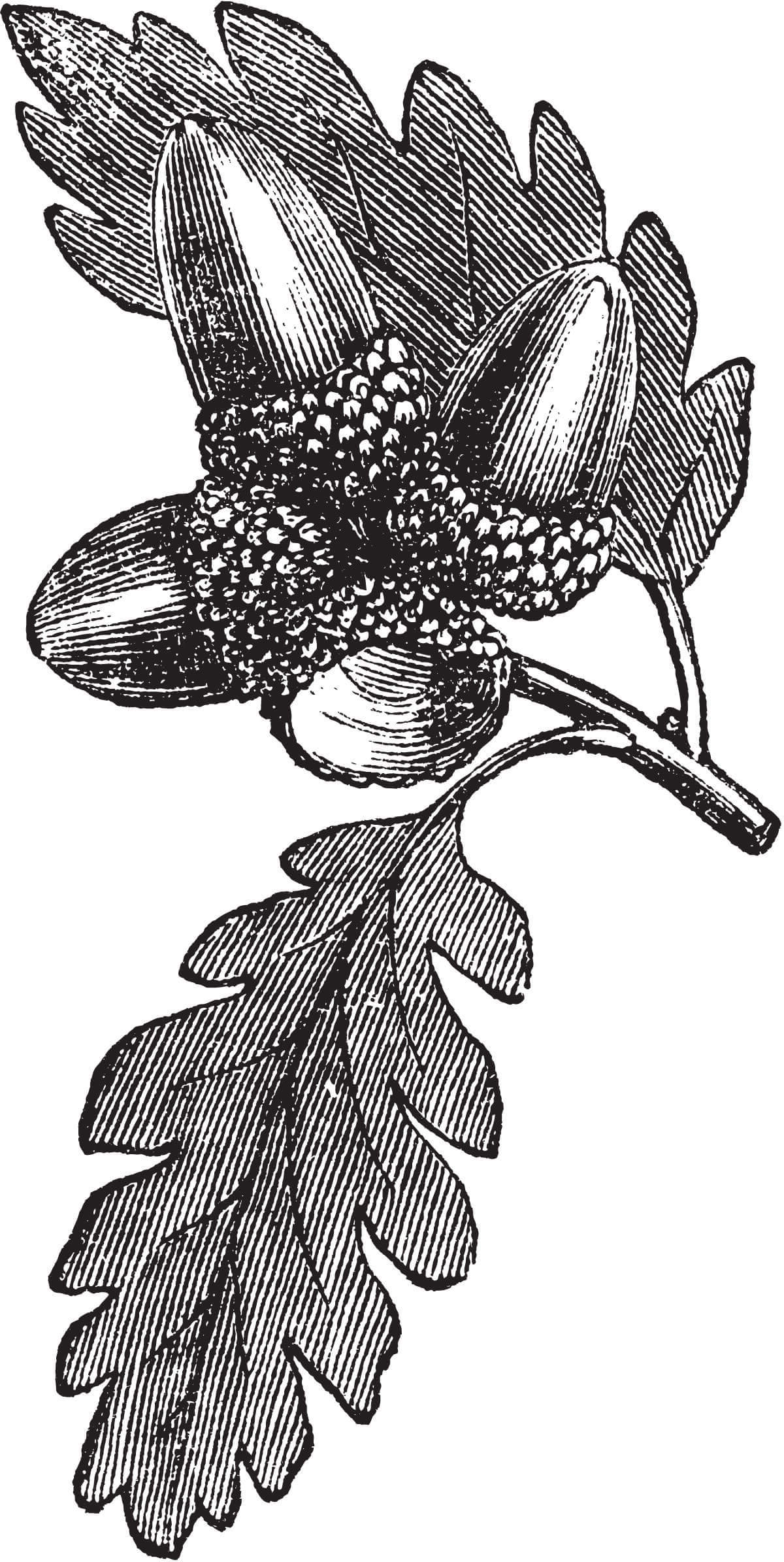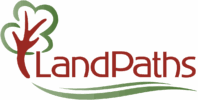Reflections: Slow Restoration Community Forestry Project for Women and Nonbinary Participants
Category: Blog, Community Resilience, Equity, forestry, Grants, Growing Community with Nature, Riddell Preserve, slow restoration, Stewardship, Wildfire Fuel Reduction
By LandPaths Staff
November 20, 2023
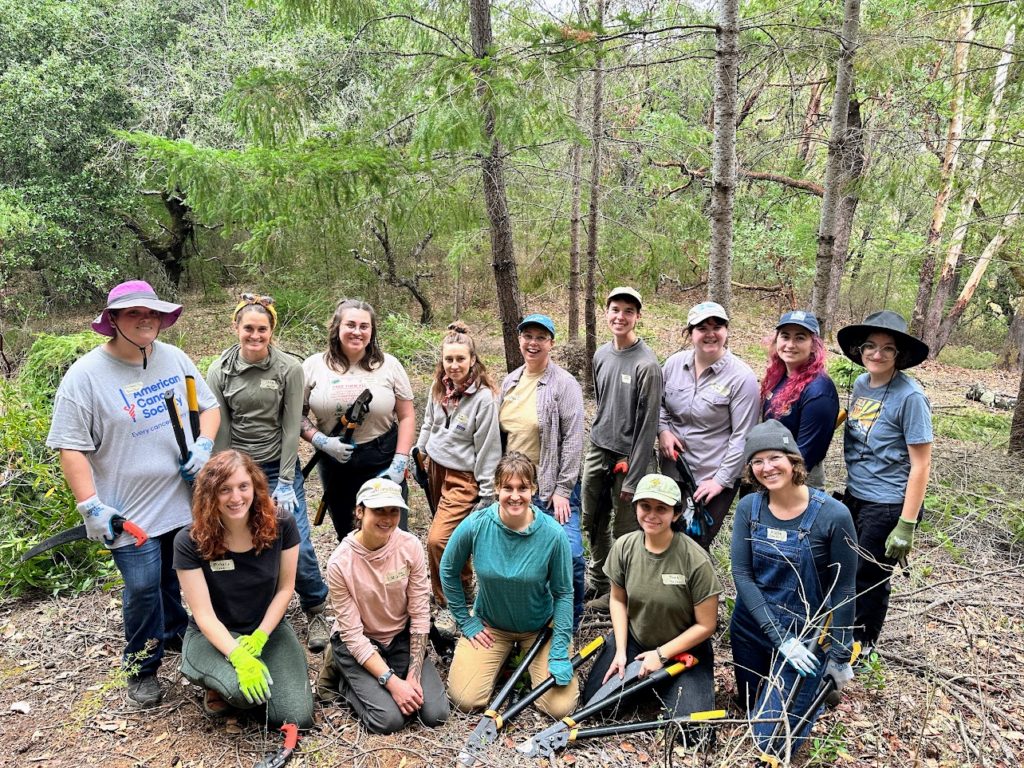
By Lara O’Herlihy, Stewardship Field Specialist
This past October, fourteen strangers met for the first time at Riddell Preserve, LandPaths’ 400-acre protected open space preserve in the hills west of Healdsburg’s Dry Creek Valley. They were all part of a three-day “Slow Restoration Community Forestry Workshop” that I designed. The participants came from across Northern California, but they shared in common being between the ages of 18 – 30, and identifying as women or nonbinary.
“I feel very grateful for this weekend. I have never been in an outdoor space that felt so safe and inclusive for me to just be myself, and I appreciate all of you for the community we created.”
Avery (they/them)
During the planning process, I envisioned an event specifically for younger women/nonbinary individuals in order to address a historic gender imbalance in the conservation field and create a safe and empowering space. The type of space that I personally longed for but was not able to find.
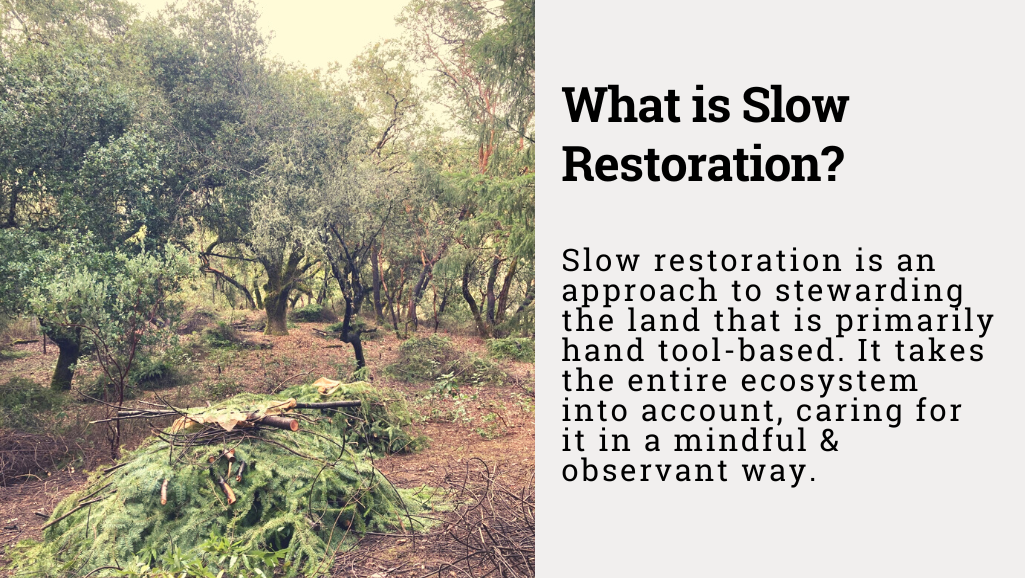

Thanks to a grant awarded from the California Fire Foundation, the vision was made into a reality. This course was designed as an introduction to restoration, forestry, wildfire resiliency, and more generally, caring for our land.
Many participants had never used a saw before and most had never felled a tree. I approached the training intent on creating a less intimidating and more community-focused environment for beginning to understand land stewardship.
“[The workshop] was incredibly empowering and I learned a lot about technique and general forest health that I didn’t know before,” said Emma (she/her).
While the workshop gave participants an opportunity to build skills and gain understanding about forest ecosystem health and wildfire resiliency, it also fit into the larger context of ongoing forest change/succession. The 1.5-acre thick stand of small Douglas fir trees and French broom we focused our forestry efforts on emerged because of the suppression of routine burning, gathering, and tending that had been done for thousands of years by the Pomo tribes prior to colonial settlement in the region.


For the past 200 years, Indigenous stewardship, guided by science and passed down through generations, has been suppressed. This, in turn, has led to the degradation of our forests. Specifically, lack of fire, combined with logging and the introduction of invasive species like French broom, have resulted in dense, even-aged stands of conifers, a loss of biodiversity –especially native grasslands, and an accumulation of dry vegetation on the forest floor.
Slow restoration forestry involves removing the vegetation and dry materials to return our forests to a healthier state. The land in California craves the return of good fire. As we have seen from wildfires in recent years, this is a delicate process when dealing with forest ecosystems that are out of balance. The reintroduction of fire depends upon active stewardship.
These issues can seem insurmountable in the face of climate change and environmental instability, but when we come together and do the work on the land, we realize our agency and create real impact.
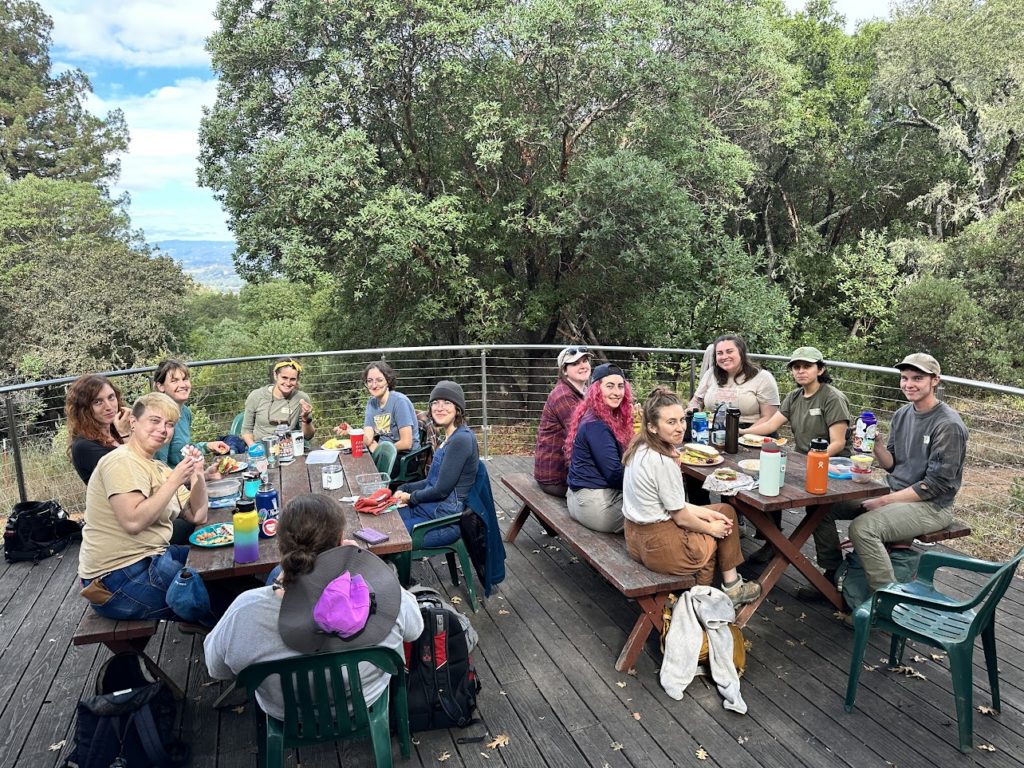

Our small group worked over three days and on a small 1.5 acre area, seemingly minuscule on a global scale, but community-based grassroots projects add up to create a larger imprint.
We can change the way we interact with the land and when we do so in community, we broaden who has access to—and who feels safe in—these incredible spaces.
As Althea (they/them) said at the end of the three-day workshop, “This was necessary. In so many ways.”
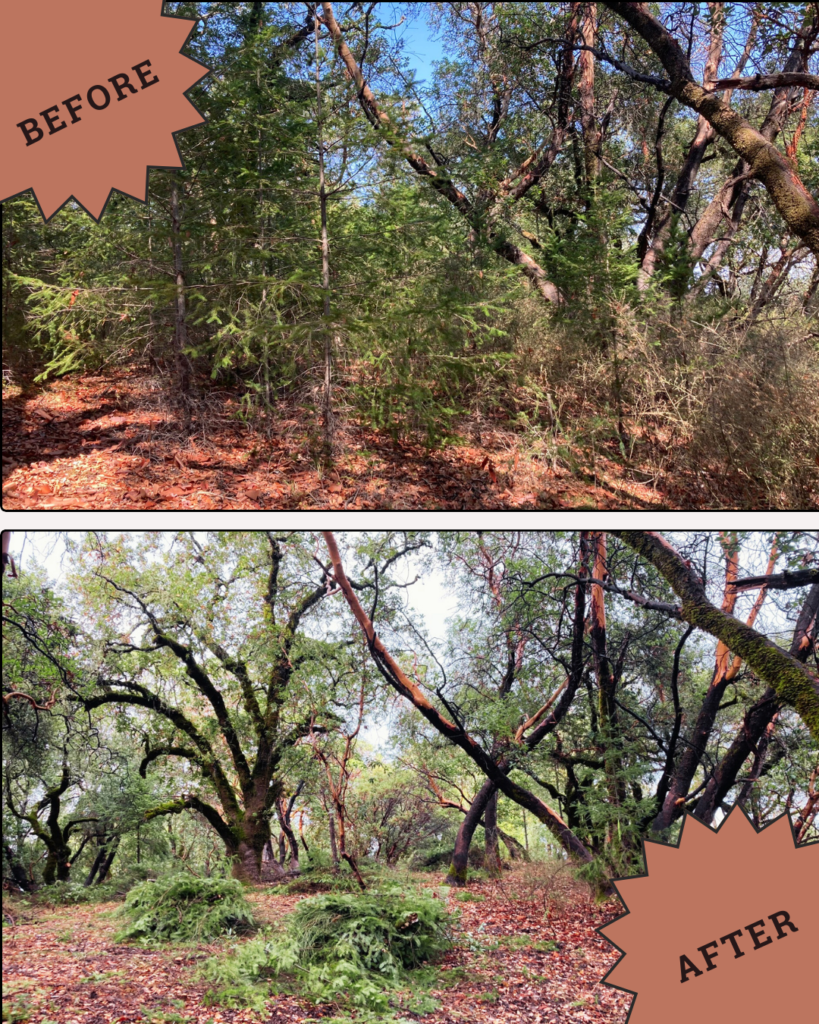

Partners
Thank You!
This workshop was made possible by a grant from the California Fire Foundation.
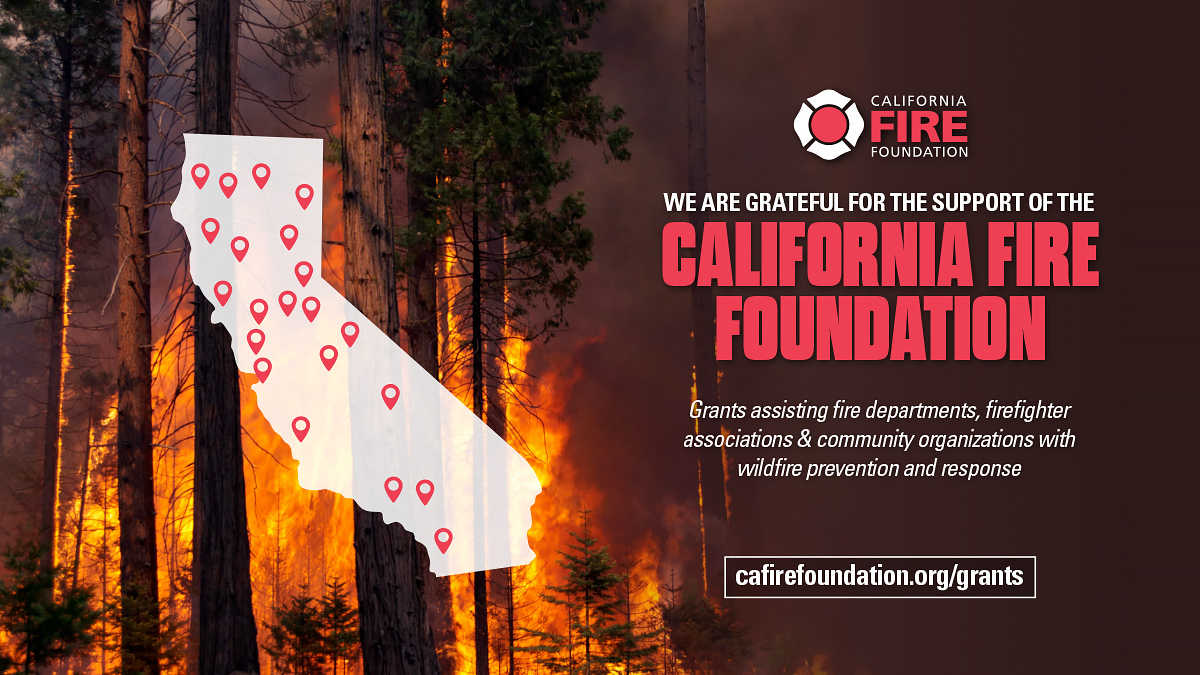

Avery, Slow Restoration Workshop participant
" I have never been in an outdoor space that felt so safe and inclusive for me to just be myself, and I appreciate all of you for the community we created and being so amazing and welcoming. "
